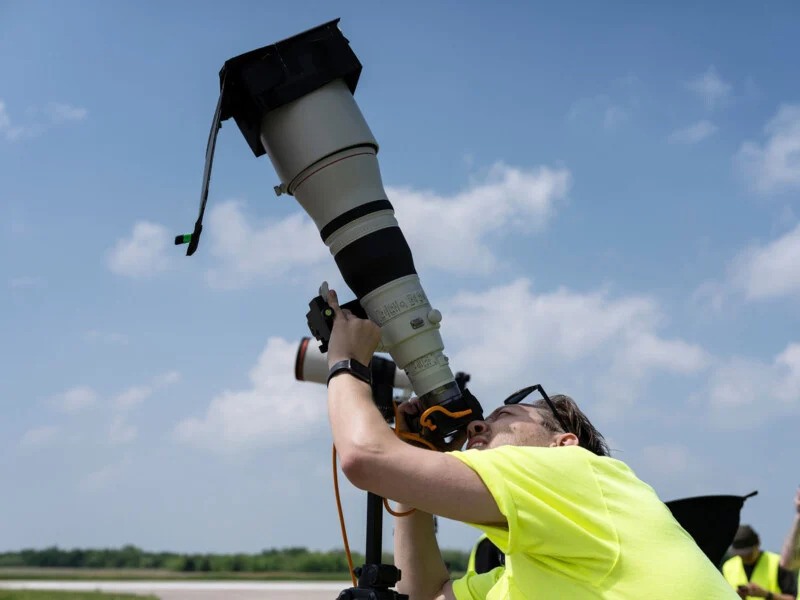Pilots and Photographers Team Up for a Fly-Through of the Solar Eclipse
By Jaron Schneider. Originally published on PetaPixel on April 08, 2024
Two pilots and a pair of photographers teamed up to create what they are describing as a “once-in-a-lifetime” set of photos featuring two planes passing through the last solar eclipse in North America for 20 years.
The two pilots, Kevin Coleman and Pete McLeod, worked with photographers Dustin Snipes and Mason Mashton to create the iconic photos. Snipes and Mashton spent what they describe as “endless hours” coordinating the shoot, from figuring out the lighting conditions and plane formations to the ideal positioning of all involved in order to make the most of the short four minute window of totality.
The photos, captured from Sulpher Springs, Texas around 1:40 PM local time on April 8, 2024, required the pilots to fly in a tight formation about 1,500 feet in elevation and only four feet apart so that they, the sun, abd the moon would be within the same frame.

“On the ground, Red Bull Air Force team member Luke Aikins received instructions from the photographers that he then translated directly to the pilots to create a series of epic imagery,” Red Bull explains.
“Normally, this would be a manageable maneuver, but when you have the darkness from the eclipse, a flight angle that needs to be perfectly lined up with the sun, and only four minutes to take the shot while moving at 180 mp/h, it makes it incredibly challenging,” Coleman says.
In order to make the outline of the planes more visible and to work better in the darker skies cast by the moon’s position over the sun, the team covered the planes’ wings in a reflective wrap, illuminating them during the shot.
“I loved being able to solve these ‘impossible shots’ with our team and create something that no one has seen before. To get the planes, the sun, the moon, and the lights all within one exposure was an extreme challenge, one I haven’t faced yet,” Snipes says.
In the short four-minute span of totality, the two planes were only able to make the pass over the photographers three times. To ensure it went smoothly, the team tested the plan numerous times and shot dozens of flyovers that let them test out different illumination solutions and built a plan for success. This time of preparation took place over the course of months.
“This is one of the hardest photos that I’ve ever tried to capture,” Mashon says. “There are known settings to capture an eclipse, but when you need to figure out the height of the planes above ground level to frame and scale them perfectly with the eclipse, during totality, it’s a totally different game.”
Red Bull says this project was undertaken to celebrate the rare celestial event and also challenge both pilots and photographers to try new, unexpected projects.
“Unlike the high adrenaline and aerobatics I’m used to, this project is all about exact precision and planning,” McLeod adds. “It’s all about teamwork to make this happen so it’s been incredible to be a part of.”

